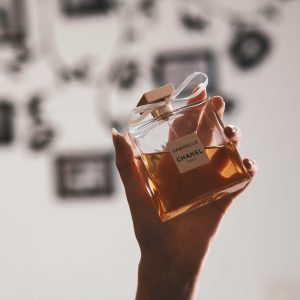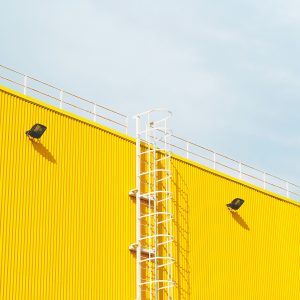
Benefits of Car Film Wrapping
A vehicle wrap can be used to increase a car’s trade-in or resale value. Additionally, wrapping a car can improve its appearance and protect the paint.
Vehicle wraps require special vinyl films that are able to conform to the creases and curves of the surface. This quality allows for a seamless application and professional finish.
Customization
Car wrapping is a highly customizable option, allowing businesses to spread their message on the road. Wraps can cover the entire vehicle or specific panels such as the hood, fenders and doors. This is especially beneficial for business vehicles that travel to customers’ homes and workplaces, as the company will be visible to a much larger audience. Wraps are also durable and will retain their appearance for an extended period of time.
In addition to covering the vehicle, wraps can add logos, graphics, and other images that can be matched to the brand’s aesthetics. There are also a number of different colors and finishes available, including carbon fiber wraps that give the car a futuristic look, and metallic films that give cars a dazzling shine.
The ability to customize your vehicle is one of the main reasons that car wraps are so popular. They can be designed in a variety of shapes and sizes to complement any style. They can even be removed later if desired, so that the original paint of the car is not damaged.
The best way to get the most out of your wrap is to have it professionally installed by a skilled installer. It is important to remember that a wrap must be applied correctly in order to avoid bubbles and other imperfections. A professional will be able to use the proper heat and pressure to ensure that the wrap is secure and flawless.
Durability
The durability of a car wrap Cutting Vinyl Rolls depends on the type of vinyl used, its thickness and whether it was designed to resist exterior elements. A professional wrap job uses thicker vinyl that is specifically crafted for outdoor use. The wrap should also have a warranty that backs it. A poorly-made wrap may start to peel prematurely.
The condition of your vehicle will also impact its longevity. The paint should be in good shape before applying the wrap. It also needs to be free of dings and scratches, which can compromise the overall quality of the wrap.
Additionally, the climate in which you live can have an impact on the lifespan of your wrap. High temperatures and baking sun can cause the vinyl to degrade more quickly. You may need to apply a protective coating or park in a garage to protect your wrap from this effect.
While less common, clear wraps are a great option for people who want to save on maintenance costs and keep their car looking new. They allow the owner to maintain the integrity of their car’s factory finish, but aren’t a substitute for regular cleaning and waxing. These wraps are especially helpful for leased cars that will be returned after the contract ends. They can also help protect a car from road salt and other debris that could damage its paint job.
Weather Resistance
Whether your vehicle wrap is glossy, matte, satin or textured, it provides superior protection from the elements. This means your car wrap will stay looking newer for longer than the underlying paint. This also helps maintain resale value for your vehicle.
In addition, a car wrap offers exceptional protection for your vehicles’s natural paint from scratches, dents and dirt. This is particularly beneficial if you use your cars as work vehicles. A full wrap can protect your vehicles while traveling on the highway and when parked at customers’ facilities or homes for extended periods of time.
Car wrapping can be applied to any type of vehicle, from personal automobiles to commercial trucks and vans. It is especially popular with auto manufacturers and car dealers to protect new or used vehicles during production, shipment and transportation from the factory to the dealership. It is also used by detailing companies and auto body shops to protect the vehicles they have detailed or repaired from unwanted damage during transportation to customers.
Car wrapping can be installed by a professional, or DIY (do it yourself). However, the longevity of a wrap depends on the quality of material and the installation process. It is recommended to use a high-quality product, such as 3M, Avery Dennison or Oracle films. These brands have been proven for their quality and durability. They also offer a wide range of colors and finishes for any design preference.
Appearance
Car wraps come in a wide variety of colors, finishes, and textures. They can be used to completely change the color of a vehicle or Car Film Wrapping just as accent pieces. They can also be used to hide a vehicle’s scratches, dings, and dents. Wraps can be removed at any time, returning the vehicle to its original factory paint finish.
Wraps can be made from a variety of materials, with prices varying depending on the manufacturer and finish type. Typically, high-end vinyl wraps are more expensive than lower-quality wraps. However, they usually last longer and are more durable.
Many providers separate their wraps into different categories based on their finish type, e.g., gloss, matte, satin and textured. Gloss is the most common, and can come in several varieties, including metallic and chrome finishes. Matte is the opposite of glossy, with a flat finish that emphasizes the shape and contours of your car’s body. Satin is a cross between matte and gloss, with a soft sheen. Carbon Fiber and Color-Shift wraps are more specialized, offering unique appearances.
It’s generally recommended to have a professional wrap installer put the wrap on your vehicle. This will help prevent bubbles and wrinkles, ensuring the wrap looks clean and professional. If you do decide to take on the project yourself, be sure to research and consult other enthusiasts for tips and tricks. It’s also recommended to avoid washing your vehicle for the first week following installation, as this allows the wrap to fully adhere.



